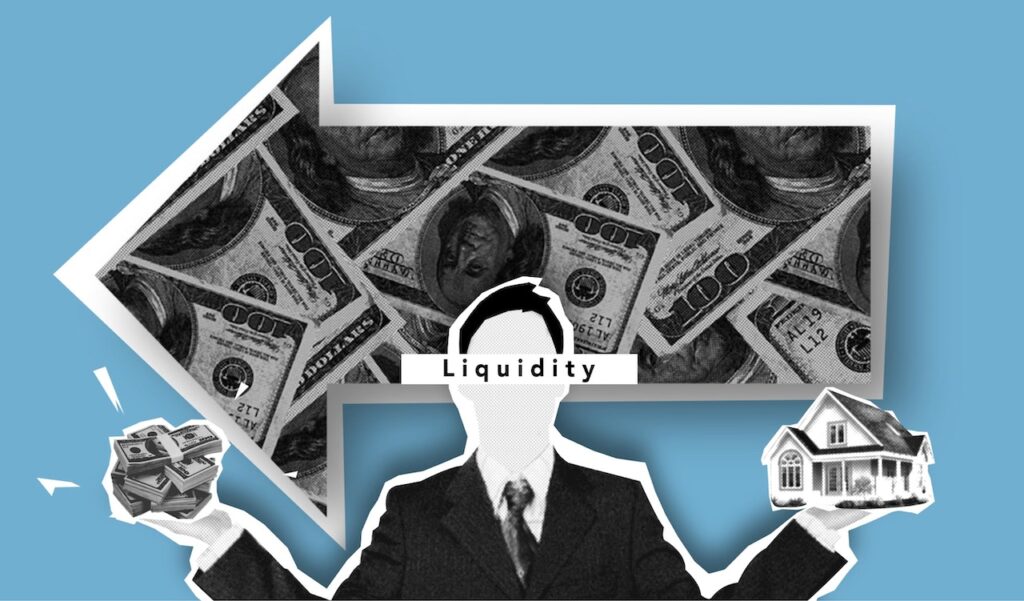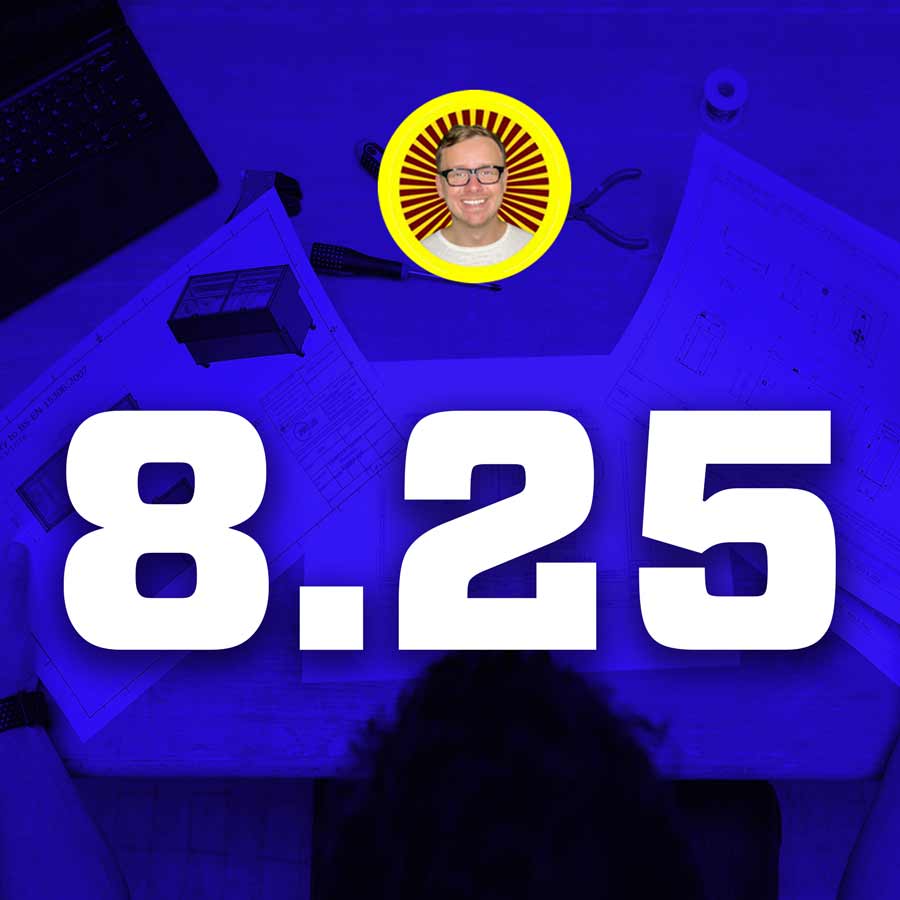Is There A Demand for Economics Degree Graduates?
As you embark on your journey toward higher education or if you realize that the career you have now is not for you, then choosing the right degree becomes a crucial decision that shapes your future prospects in life. There are a multitude of options available and the field of Economics stands out as one of the most compelling choices.
An Economics degree contains the study of how societies allocate scarce resources and make decisions in the face of unlimited wants. It delves into the complex workings of markets, policies, and global economic systems, providing a comprehensive understanding of the forces that shape our world.
With its emphasis on critical thinking, problem-solving, and data analysis, an economics degree equips you with a versatile skill set applicable to a wide range of industries. If you graduate with an Economics degree, you can pursue careers in finance, consulting, research, government, and non-profit organizations, among others. The demand for professionals with expertise in economics continues to grow, with opportunities for both domestic and international employment.
In this article, we will explore the benefits and disadvantages of pursuing an Economics degree, highlighting its relevance in today’s job market and the potential for long-term career growth. In the upcoming sections, we will explore the curriculum, skills developed, and potential career paths associated with an economics degree, providing a comprehensive overview for high school graduates considering this field of study.
What Is an Economic Degree?

An economics degree is a field of study that delves into the intricate workings of the economy, exploring how societies allocate resources and make decisions regarding production, distribution, and consumption. Through the lens of economic principles and theories, students gain insights into the forces shaping markets, businesses, and governments.
Within the realm of an economics degree, you will delve into diverse subjects such as microeconomics, macroeconomics, econometrics, and economic policy. Microeconomics focuses on the behavior of individuals and firms, while macroeconomics looks at the broader picture of national and global economies. Econometrics involves the application of statistical methods to analyze economic data, while economic policy examines how governments influence economic outcomes.
By pursuing an economics degree, you will acquire a range of valuable skills, including critical thinking, data analysis, problem-solving, and decision-making. These skills are highly sought after in various industries, including finance, consulting, research, government, and nonprofit organizations.
How Long Will It Take to Finish a Degree in Economics?
A bachelor’s degree in economics takes around four years to complete for full-time students. The duration may vary based on factors like program type, course load, and transfer credits.
Students are typically required to fulfill general education requirements and complete core courses specific to the economics major, including subjects like microeconomics, macroeconomics, econometrics, statistics, and economic theory. Accelerated programs or credit transfer options may be available, allowing students to complete their degrees in a shorter timeframe.
Career Paths and Job Market Demand for Economics Graduates

If we base it on official government data, it looks like that the the job market demand for Economics degree graduates is promising and offers a wide range of career opportunities. Economics graduates are sought after in various industries, including finance, consulting, government, research, and data analysis. They are valued for their analytical and problem-solving skills, ability to understand complex economic systems, and for making informed decisions.
The U.S. Bureau of Labor Statistics (BLS) reports positive job prospects for Economists, with a projected growth rate of 6% from 2021 to 2031, about as fast as the average for all occupations. This growth is driven by the increasing need for economists to replace workers who transfer to different sectors or exit the labor force or retire.

What Jobs Can You Get With an Economics Degree?
There is a variety of jobs that Economics majors can go on. Most of these jobs are in demand in the market today, and all offer valuable pay to fix real-world problems. If you are one of the student interested in complex work, here are the careers that you can possibly end up with in the future:
Actuarial Analyst
Actuarial analysts use mathematics, statistics, and economics to assess risk and uncertainty. They work in a variety of industries, including insurance, finance, and healthcare.
Business Reporter
Business reporters cover economic news and trends for newspapers, magazines, websites, and television. They need to be able to understand complex economic concepts and communicate them in a clear and concise way.
Economic Researcher
Economic researchers study economic issues and trends. They work for government agencies, think tanks, and universities.

Economic Consultant
Economic consultants provide advice to businesses and governments on economic matters. They need to have strong analytical and problem-solving skills.
Financial Consultant
Financial consultants help individuals and businesses make financial decisions. They need to have a deep understanding of financial markets and products.
Financial Controller
Financial controllers oversee the financial operations of a company. They need to have strong analytical and problem-solving skills.
Financial services
There are many different jobs in financial services, including investment banking, asset management, and securities trading. These jobs require strong analytical and quantitative skills.
Investment Analyst
Investment analysts research and analyze stocks, bonds, and other investments. They need to have strong analytical and quantitative skills.
Management Consultant
Management consultants help businesses improve their performance. They need to have strong analytical and problem-solving skills.
Market Research Analyst
Market research analysts collect and analyze data to help businesses make decisions about products, pricing, and marketing. They need to have strong analytical and quantitative skills.
Policy Analyst
Policy analysts research and analyze public policy issues. They work for government agencies, think tanks, and universities.
Public Relations Specialist
Public relations specialists help businesses and organizations communicate with the public. They need to have strong communication and writing skills.
Quantitative Analyst
Quantitative analysts use mathematics, statistics, and computer science to solve problems. They work in a variety of industries, including finance, insurance, and healthcare.
Stockbroker
Stockbrokers buy and sell stocks on behalf of clients. They need to have strong analytical and problem-solving skills.
Job Outlook After Completing an Economics Degree

By 2031, it is more likely that there will be 17,800 job employment for economists and about 1,400 openings each year on average, representing a 6 percent growth overall, according to the BLS. With this data, the job outlook for the next decade for an Economics major is growing but is still subjectively low compared to other degrees like Statistics Degree.

How Much Does an Economist Earn?

According to the Bureau of Labor Statistics, the median annual wage for economists was 105,630 USD in May 2021, while the lowest 10% of economists earned less than 62,460 USD, and the highest 10% earned more than $193,690. But the Median annual wages in the top industries for economists in May 2021 were as follows:
- Finance and insurance – 163,640 USD per year
- Federal government, excluding postal service – 125,950 USD per year
- Management, scientific, and technical consulting services – 117,510 USD per year
- Scientific research and development services – 101,910 USD per year
- State government, excluding education and hospitals – 82,220 USD per year
The salary of economists varies depending on factors and circumstances like education, experience, and industry. Those Economists with a master’s degree or Ph.D. typically earn more than those with a bachelor’s degree. Economists with more experience also tend to earn more as they leverage their experience to negotiate higher wages. Those Economists who work in certain industries, such as finance and consulting, typically earn more than those who work in other industries.

Data provided by the BLS are one thing but this research and data according to Glassdoor which is based on its research and reviews are projecting that an Economics degree graduate who works as a Business Reporter makes an average total pay per year of 67,098 USD in the US.

Another survey from Glassdoor shows that an Economic Consultant earns an average total pay of 96,302 USD per year in the US.

Graduates with an Economics degree who do Financial Consulting earn 102,996 USD as an average total pay per year in the US according to Glassdoor.
Are Economists Satisfied at Work?

According to the survey conducted by CareerExplorer, economists are somewhat satisfied with their job, factoring in various circumstances that may affect them. This survey further indicates that most Economist do enjoy and are mostly satisfied in their respective fields.

How Do Economics Degree Graduates Fare in the Real World?
The data we look at are precise data, but what is accurate are these anecdotes that I found on Reddit which gives a glimpse of what actually is being an Economist in real life.
Job Experience
In this Reddit thread, an experienced economist shares insights and advice about the field of economics. This Reddit user, who has been a federal employee for 10 years and holds advanced degrees in Economics, offers information on various topics, including software proficiency, international experience, building relationships with professors, and the top three fundamental concepts in economics.
They also express respect for Ron Paul’s consistency despite policy disagreements. The economist engages with Redditors and provides further assistance via a throwaway email address. Overall, the thread offers a glimpse into the economist’s perspective and provides valuable information for those interested in pursuing a career in economics.
Salary
This Reddit user divulges his salary as an Economist. By sharing this journey, he invites us to share our own career paths and likely seeks insights into different trajectories and opportunities within the field of economics. This post provides a glimpse into one person’s experience and can be valuable for those interested in understanding the diverse paths and possibilities within the economics profession.
Is an Economics Degree Right for You?
At this point, chances are you may have already decided to take delve into Economics. I advise you to hold off on that major decision and answer this sheet first:
| CONSIDERATIONS | YES | NO |
| Interest Are you interested in the field of Economics? | ||
| FoundationDo you have a strong foundation in mathematics? | ||
| DedicationAre you willing to dedicate significant time and effort to completing a rigorous curriculum? | ||
| ComfortAre you comfortable working with complex systems and data interpretation? | ||
| Problem-SolvingDo you enjoy problem-solving and critical thinking? | ||
| Continuous LearningAre you willing to continuously learn and adapt to new technologies and advancements in the field? | ||
| CollaborationAre you prepared to work independently and as part of a team? | ||
| ChallengeAre you willing to take on challenging projects and meet tight deadlines? | ||
| AptitudeDo you have an aptitude for looking at large datasets? | ||
| Career AspirationsAre you interested in pursuing a career in Economics and willing to invest in higher education? |

Factors to Consider in Choosing the Best School for an Economics Degree
If you have made up your mind that this would be your choice, one of your first and second major decisions is to select the best school that offers this degree. Here are factors to consider when choosing your school for your journey in taking an Economics Degree:
Accreditation
Ensure that the school is accredited by a recognized accrediting body to guarantee the quality and legitimacy of the program.
Reputation
Consider the reputation of the school and its economics department. Look for schools with a strong track record in economics education and research.
Faculty
Research the qualifications and expertise of the faculty members in the economics department. Experienced and knowledgeable professors can enhance your learning experience.
Curriculum
Review the curriculum to see if it covers a wide range of economics topics, including microeconomics, macroeconomics, econometrics, and specialized areas of interest.
Resources and Facilities
Evaluate the resources available, such as libraries, research centers, and computer labs, which can support your studies and provide opportunities for practical learning.
Internship and Job Placement Opportunities
Consider the school’s connections with local industries and businesses, as well as its track record in helping students secure internships and job placements in the field of economics.
Alumni Network
Explore the school’s alumni network and see if it offers networking opportunities and mentorship programs that can benefit your future career prospects.
Financial Considerations
Take into account the cost of tuition and the availability of financial aid or scholarships to ensure that the chosen school aligns with your budget and financial situation.

Pros and Cons of an Economics Degree
Pros
These are the advantages of an Economics Degree
- Understanding of economic principles and concepts applicable to various industries
- Ability to analyze and interpret complex economic data
- Skills in quantitative analysis and critical thinking
- Versatility in career options, including finance, consulting, policy analysis, and research
- Potential for high earning potential and job stability
Cons
- Challenging coursework with a strong focus on mathematics and economic analysis
- Limited specialization within the field, requiring further education or specialization for certain career paths
- Competitive job market, especially for prestigious positions or roles in top organizations
- Potential for high-pressure work environments, particularly in fast-paced industries like finance
- Need for continuous learning and staying updated on economic trends and policy changes
FAQs About Economics Majors
Can I pursue an economics degree if I don’t have a strong background in math?
While a solid foundation in mathematics is beneficial for understanding and analyzing economic concepts, many economics programs offer courses that gradually build mathematical skills. With dedication and support from professors, students can develop the necessary math skills to succeed in an economics program.
What is the difference between a Bachelor’s degree in economics and a Bachelor’s degree in finance?
While both economics and finance degrees focus on the study of financial systems and markets, there are some key differences. Economics provides a broader understanding of how individuals, businesses, and governments make choices and interact in the economy, while finance focuses more specifically on the management of money, investments, and financial institutions.
Are internships important for economics majors?
Yes, internships can be highly valuable for economics majors. They provide practical experience in applying economic principles and analysis in real-world settings. Internships also allow students to network, gain industry-specific knowledge, and enhance their resumes, increasing their competitiveness in the job market upon graduation.
Final Verdict for Economics Degree
With all the information available to us, here is my final assessment of the degree in Economics:
Salary: 9/10
Salaries for Economists are competitive varying from their level of education. Although its growth is not that solid, it still boasts a high median for its salary, thereby taking such a degree for college is a good investment in the long run.
Satisfaction: 8/10
Economists belong to those professionals who are deeply satisfied with the industry today. Their workload is somewhat heavy but bearable, and they have a lot of opportunities to move up in their career with a high salary outlook.
Demand: 7/10
The demand for job roles for economists is not that solid but continues to go up the curve and new technologies always find the need for such professionals.
X-Factor: 9/10
This degree offers a wide range of fields and areas of graduate study to explore such as Investment Analysis, Economic consulting, and Market research. It also allows students to pursue further studies in the form of specialized concentrations and research areas.

Final Score for Economics Degree: 8.25/10
Overall, this degree offers a wide range of career opportunities and is becoming increasingly valuable in our highly globalized and complex world. With a final score of 8.25/10, This is a solid investment for those interested in pursuing a career as an Investment Analyst in private companies or an Economic consultant in the government.
Alternatives to an Economics Degree
This degree can be appealing to those wanting a career in economy micro or macro and research, but there are other alternatives that provide the same opportunities. Almost all degrees can provide further specialization studies which will all depend on the student’s interest and consistency. Other alternatives include:
Online Courses and Certifications
Many reputable online platforms offer courses and certifications in economics. These programs provide flexibility and allow you to learn at your own pace. While they may not offer a full degree, they can still provide valuable knowledge and skills in economics.
Self-Study and Books
Economics is a field that can be self-taught to some extent. There are numerous books, textbooks, and online resources available that cover various aspects of economics. Engaging in self-study can help you gain a solid understanding of economic principles and theories.
Open Courseware
Several universities and institutions offer free access to their course materials and lectures online. You can take advantage of these resources to learn economics from top-tier institutions without enrolling in a formal degree program.
Workshops and Seminars
Attend workshops and seminars related to economics. These events often cover specific topics or current issues in economics and can provide valuable insights and networking opportunities.
Join Economic Research Organizations
Consider joining economic research organizations or think tanks as a research assistant or intern. This allows you to work alongside economists, engage in practical research, and gain real-world experience in the field.

… [Trackback]
[…] Find More to that Topic: shanehummus.com/college-degrees/is-there-a-demand-for-economics-degree-graduates/ […]
… [Trackback]
[…] Information to that Topic: shanehummus.com/college-degrees/is-there-a-demand-for-economics-degree-graduates/ […]
… [Trackback]
[…] Information to that Topic: shanehummus.com/college-degrees/is-there-a-demand-for-economics-degree-graduates/ […]
… [Trackback]
[…] Information to that Topic: shanehummus.com/college-degrees/is-there-a-demand-for-economics-degree-graduates/ […]
… [Trackback]
[…] Read More to that Topic: shanehummus.com/college-degrees/is-there-a-demand-for-economics-degree-graduates/ […]
… [Trackback]
[…] Find More Info here to that Topic: shanehummus.com/college-degrees/is-there-a-demand-for-economics-degree-graduates/ […]
… [Trackback]
[…] Information on that Topic: shanehummus.com/college-degrees/is-there-a-demand-for-economics-degree-graduates/ […]
… [Trackback]
[…] Read More here on that Topic: shanehummus.com/college-degrees/is-there-a-demand-for-economics-degree-graduates/ […]
… [Trackback]
[…] Here you will find 63604 more Information to that Topic: shanehummus.com/college-degrees/is-there-a-demand-for-economics-degree-graduates/ […]
… [Trackback]
[…] Info on that Topic: shanehummus.com/college-degrees/is-there-a-demand-for-economics-degree-graduates/ […]
… [Trackback]
[…] Read More on to that Topic: shanehummus.com/college-degrees/is-there-a-demand-for-economics-degree-graduates/ […]
… [Trackback]
[…] Find More on to that Topic: shanehummus.com/college-degrees/is-there-a-demand-for-economics-degree-graduates/ […]
… [Trackback]
[…] Find More on to that Topic: shanehummus.com/college-degrees/is-there-a-demand-for-economics-degree-graduates/ […]
… [Trackback]
[…] There you can find 29946 more Info on that Topic: shanehummus.com/college-degrees/is-there-a-demand-for-economics-degree-graduates/ […]
… [Trackback]
[…] Information on that Topic: shanehummus.com/college-degrees/is-there-a-demand-for-economics-degree-graduates/ […]
… [Trackback]
[…] Info to that Topic: shanehummus.com/college-degrees/is-there-a-demand-for-economics-degree-graduates/ […]
… [Trackback]
[…] Read More to that Topic: shanehummus.com/college-degrees/is-there-a-demand-for-economics-degree-graduates/ […]
… [Trackback]
[…] Read More here on that Topic: shanehummus.com/college-degrees/is-there-a-demand-for-economics-degree-graduates/ […]
… [Trackback]
[…] Find More on that Topic: shanehummus.com/college-degrees/is-there-a-demand-for-economics-degree-graduates/ […]
… [Trackback]
[…] Find More here on that Topic: shanehummus.com/college-degrees/is-there-a-demand-for-economics-degree-graduates/ […]
… [Trackback]
[…] Information on that Topic: shanehummus.com/college-degrees/is-there-a-demand-for-economics-degree-graduates/ […]
… [Trackback]
[…] Find More to that Topic: shanehummus.com/college-degrees/is-there-a-demand-for-economics-degree-graduates/ […]